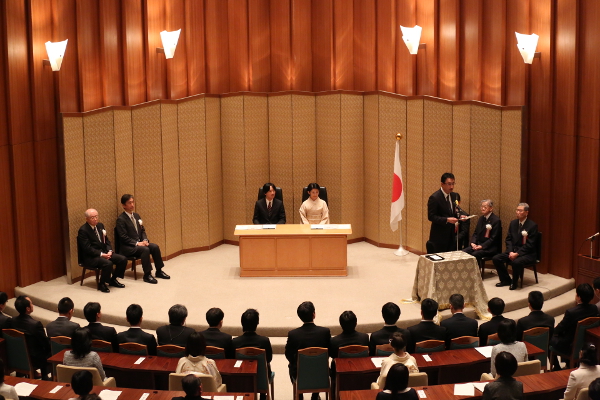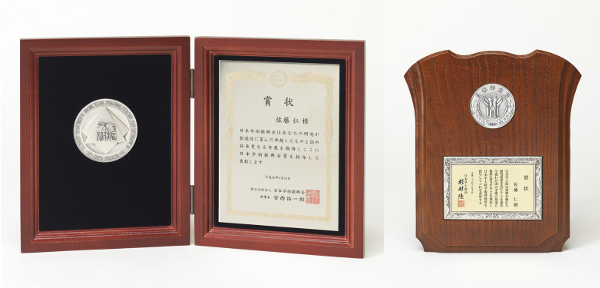Resources and Human Interdependence in Southeast Asia
People
Research Faculty

SATO Jin
SATO Jin
Professor
Department of Pioneering Asian Studies,
Institute for Advanced Studies on Asia
satoj[at]
Research theme: Natural Resource Governance & Administration, Foreign Aid, Development in Asia
Research Topics
Jin Sato is a Professor at the Institute of Advanced Studies on Asia, the University of Tokyo. He has a joint affiliation with Princeton University (as a Visiting Professor of Woodrow Wilson School in Spring 2015, and a Visiting Associate Professor of East Asian Studies Department in Spring 2014). He was previously affiliated with the Agrarian Studies Program at Yale (1998-99). His recent publications include an edited volume, Governance of Natural Resources: Uncovering the Social Purpose of Materials in Nature (United Nations University Press, 2013) and a co-edited book, The Rise of Asian Donors: Japan’s Impact on the Evolution of Emerging Donors (Routledge, 2012). In addition to the 7 single authored books in Japanese, he has numerous publications in international peer reviewed journals such as Comparative Studies in Society and History, World Development, Journal of Development Studies, Development and Change, and Sustainability Science on foreign aid and natural resource politics in Asia. He won the Japan Academy Medal in the field of humanities and social sciences for the year 2013.


A snap shot from the award ceremony of the Japan Academy in February 9, 2014
Research activities
Books
- Sato, Jin. Resource Thinking of the ‘Have-Nots’ Sustainability of Land and Alternative Vision in Japan: University of Tokyo Press, 2011. [Link]
- Sato, Jin. Politics of Scarce Resources: Conservation and Development in Rural Thailand: University of Tokyo Press, 2002. (in Japanese) [Link]
Edited Books
- Sato, Jin, and Soyeun Kim, eds. The Semantics of Development in Asia: Exploring “Untranslatable” Ideas Through Japan: Springer Nature, 2024.6.
- Sato, Jin, ed. Governance of Natural Resources: Uncovering the Social Purpose of Materials in Nature: United Nations University Press, 2013.7. (in english)
- Sato, Jin, and Yasutami Shimomura, eds. The Rise of Asian Donors: Japan’s Impact on the Evolution of Emerging Donors. Written by Jin Sato, and Yasutami Shimomura eds.: Routledge-GRIPS Development Forum Studies, 2012. [Link]
- Sato, Jin, ed. Transboundary Resources and Environment in Mainland Southeast Asia. Written by Jin Sato: Shokado, 2010.
Report
- Sato, Jin. Triangular Cooperation in East Asia: Challenges and Opportunities for Japanese Official Development Assistance: UN ESCAP, 2014.
Articles and Book Chapters
- Sato, Jin. “Development: Which Ideas Now?” The Semantics of Development in Asia: Exploring “Untranslatable” Ideas Through Japan. Edited by J. Sato, and K. Soyeun: Springer Nature, 2024.6: 1-13.
- Sato, Jin. “Yōsei-Shugi: The Mystery of the Japanese Request-Based Aid.” The Semantics of Development in Asia: Exploring “Untranslatable” Ideas Through Japan. Edited by J. Sato, and K. Soyeun: Springer Nature, 2024.6: 113-128.
- Pattajit Tangsinmunkong, Jin Sato. “Experiencing Development: The Resistance and Adaptation of Thailand Over Half a Century”,in Ryo Sahashi, Yasuhiro Matsuda and Waka Aoyama eds.,.”Asia Rising: A handbook of History and International Relations in East, South and Southeast Asia,: Springer, 2024: 187-208.
- Kim, Soyeun., Wang, Muyun., and Jin. Sato. “Development Knowledge in the Making: The Case of Japan, South Korea and China.”Progress in Development Studies 23, no. 3 2023.7: 275-293.
- Sato, Jin. “Yosei-shugi: The Mystery of the Japanese Request-based Principle.”JICA-RI Working Paper 12 2023.6.
- Sato, Jin. “Introduction to the Special Issue 1“Untranslatable” Japanese Development Concepts.”Journal of International Development Studies 31, no. 3 2023.3: 5-8.
- Sato, Jin. “Pivotal Moments in Japanese ODA: Circa 1950-2010.” International Development Cooperation of Japan and South Korea: New Strategies for an Uncertain World. Edited by Huck-ju Kwon, et al.: Palgrave Macmillan, 2022: 45-72.
- Sato, J., & Sonoda, S. “Asian studies “inside-out”: A research agenda for the development of Global Asian Studies.”International Journal of Asian Studies 18, no. 2 2021.6: 207-216.
- Sato, Jin. “Compulsion to maintain: water and state power in Southeast Asia.” Origins and Evolution of Environmental Policies: State, Time and Regional Experiences. Edited by T. Terao, and T. Funatsu: Edward Elgar Publishing, 2021: 105-123.
- Sato, J. “Research at a Distance: Area Studies in the Post-Pandemic Era.”International Journal of Asian Studies vol. 17, Issue. 2 2020.7: 105-108.
- Sato, Jin, and Awidya Santikajaya. “Variety of Middle-Income Donors: Comparing Foreign Aid Approaches by Thailand and Indonesia,.” JICA-RI Working Paper. no. 180: JICA Research Institute, 2019.
- Sato, Jin. “The Domestic Infrastructure of Economic Cooperation.” Engineering Asia:Technology, Colonial Development and the Cold War Order. Edited by Hiromi Mizuno, Aaron S. Moore, and John DiMoia: Bloomsbury Publishing, 2018: 43-58.
- Sato, Jin. “Triangular Cooperation in East Asia: Challenges and Opportunities for Japanese Official Development Assistance.”IDS Bulletin 49, Issue. 3 2018.7: 111-128.
- Sato, Jin. “Internationalization from Within:140 Years of Internationalization at the University of Tokyo.” The “Global” and the “Local” in Early Modern and Modern East Asia. Edited by Benjamin A.Elman, and Chao-Hui Jenny Liu: BRILL, 2017: 81-94.
- Sato, Jin. “Internationalization from Within:140 Years of Internationalization at the University of Tokyo.” The “Global” and the “Local” in Early Modern and Modern East Asia. Edited by A. Elman Benjamin, and Chao-Hui Jenny Liu: BRILL, 2017: 81-94.
- Sato, Jin. “The Benefits of Unification Failure: Re-examining the Evolution of Economic Cooperation in Japan.” Japan’s Development Assistance Foreign Aid and the Post-2015 Agenda. Edited by Hiroshi Kato John Page, and Yasutami Shimomura: Palgrave Macmillan, 2015: 88-102. [Link]
- Sato, Jin. “Compulsion to Maintain: Water and State Power in Southeast Asia.”8th European Southeast Asian Studies Conference, August 11-14, 2015,Vienna, Austria. 2015.8.
- Dina, Thol, and Jin Sato. “The Cost of Dividing the Commons: Overlapping Property Systems in Tonle Sap, Cambodia.”International Journal of the Commons Vol.9, no. 1 2015.8: 261-280. [Link]
- Sato, Jin. “The Benefits of Unification Failure: Re-examing the Evolution of Economic Cooperation in Japan.”JICA-RI Working Paper, no. 87 2015. [Link]
- Sato, Jin. “Origins of Area Studies in Japan: From Passive Reaction to Forward Engagement.” Area Studies and the History of East and South East Asian Studies: The Case of Frankfurt University. Edited by Michael Kinski: Frankfurt East Asian Studies Series, Frankfurt, Germany, 2015: forthcoming.
- Sato, Jin. “Social Resilience in Post-Tsunami Japan: Diversity and Security after March 11th 2011.” International Encyclopedia of the Social and Behavioral Sciences. 2nd ed: Oxford: Elsevier, 2015: 570-575.
- Dina, Thol, and Jin Sato. “Is Greater Fishery Access Better for the Poor? Explaining De-Territorialisation of the Tonle Sap, Cambodia.”Journal of Development Studies Vol.50, no. 7 2014.3: 962-976.
- Sato, Jin. “Resource Politics and State-Society Relations: Why are certain states more inclusive than others?” Comparative Studies in Society and History. Vol. 56. no. 3, 2014: 746-777.
- Sato, Jin. “Resource Politics and State-Society Relations: Why are certain states more inclusive than others?” Comparative Studies in Society and History. Vol. 56. no. 3, 2014: 746-777.
- Sato,Jin, Hiroaki Shiga, Takaaki Kobayashi, Hisahiro Kondoh. “‘Emerging Donors’ from a Recipient Perspective: Institutional Analysis of Foreign Aid in Cambodia.”World Development Vol.39, no. 12 2011: 2091-2104. [Link]
- Sato, Jin. “State Inaction in Resource Governance: Natural Resource Control and Bureaucratic Oversight in Thailand.”JICA-RI Working Paper, no. 36 2011. [Link]
- Sato, Jin. “Social science and knowledge for sustainability.” Sustainability Science:A Multidisciplinary Approach. Edited by Hirishi Komiyama, Kazuhiko Takeuchi, Hideaki Shiroyama, and Takashi Mino: United Nations University Press, 2011: 327-335. [Link]
- Sato, Jin. “Resource Policy and Domestic Origins of Foreign Aid.” Economic and Policy Lessons from Japan to Developing Countries. Edited by Toshihisa Toyoda, Hiroshi Kan Sato, and Jun Nishikawa: Palgrave Macmillan, 2011: 77-97. [Link]
- Sato, Jin. “Matching Goods and People: Aid and Human Security After the 2004 Tsunami.”Development in Practice Vol.20, no. 1 2010: 70-84. [Link]
- Sato, Jin. “Democratic Turn of Resource Governance in Japan: Prewar and Postwar Efforts for Integration in Resource Policy.” Adaptation and Mitigation Strategies for Climate Change. Edited by A.Sumi, K.Fukushi, and A.Hiramatsu: Springer, 2010: 309-316. [Link]
- Sato, Jin, Hiroaki Shiga, Takaaki Kobayashi, and Hisahiro Kondoh. “How Do “Emerging” Donors Differ from “Traditional” Donors? Institutional Analysis of Foreign Aid in Cambodia.”JICA-RI Working Paper, no. 2 2010. [Link]
- Sato, Jin. “Civil society engagement in Japan.” Engaging civil society: Emerging trends in democratic governance. Edited by S.G Cheema, and V.Popovski: United Nations University Press, 2010: 232-245. [Link]
- Kondoh, Hisahiro, Takaaki Kobayashi, Hiroaki Shiga, and Jin Sato. “Diversity and Transformation of Aid Patterns in Asia’s “Emerging Doners”.”JICA-RI Working Paper, no. 21 2010. [Link]
- Sato, Jin. “Formation of Resource Concept in Japan: Post-War Efforts in Knowledge Integration.”Sustainability Science Vol.2, no. 2 2007: 151-158. [Link]
- クロード・レヴィ=ストロース. ““現状”の奥ゆきを捉える学問.”レヴィ=ストロース講義: 平凡社 2005: 247-259. (in Japanese) [Link]
- Sato, Jin. “From “Natural Wealth” to Resources: Simplification of Nature in Asia.” Nature and Human Communities. Edited by Takeshi Sasaki. Tokyo: Springer, 2004: 111-122.
- Sato, Jin. “Informational Basis of Policy Judgments: The Case of Royal Forest Department in Thailand.” People and Forest: Policy and Local Reality in Southeast Asia, the Russian Far East, and Japan. Edited by Makoto Inoue, and Hiroshi Isozaki: Kluwer Academic Publishers, 2003: 169-185.
- Sato, Jin. “Public Land for the People: Institutional Basis of Community Forestry in Thailand.”Journal of Southeast Asian Studies Vol.32, no. 2 2003: 329-346.
- Sato, Jin. “Karen and the Land in Between: Public and Private Enclosure of Forests in Thailand.” Conservation and Mobile Indigenous Peoples: Displacement, Forced Settlement and Sustainable Development. Edited by Dawn Chatty, and Marcus Colchester, Studies in Forced Migration. New York: Berghahn Books, 2002: 277-295.
- Sato, Jin. “People in Between: Conversion and Conservation of Forest Lands in Thailand.”Development and Change 31, no. 1 2000: 155-177.
Conference
- Sato, Jin. “Sustainability Inverted: How control of natural resources turns into the control of people.”, February 27 2024, Columbia University Climate School.
- Sato, Jin. “Sustainability Inverted: How control of natural resources turns into the control of people.”, February 27 2024, Columbia University Climate School.
- Sato, Jin. “Does Area Studies Matter? Further thoughts on Asian Studies “Inside-out”.” Presented at the International Conference on Research and Development of Global Asia, September 9 2022, Lund University.
- Sato, Jin. “After Competition: From Self-Reliance to Dependencies in Resource Governance.” Presented at the Agrarian Transformations and Ontological Challenge in Southeast – South Asia: Resources, Peoples and Motions, November 13 2021.
- Sato, Jin. “Japanese Perspective on Poverty and Rural Revitalization.” Presented at the Global Poverty and Rural Revitalization: Challenges and Experiences, October 12 2021, China Agricultural University(ONLINE).
- Sato, Jin. “Pivotal Moments in Japanese ODA: Circa 1950s–2010s.” Presented at the The Asia Center and Asia Development Institute (ADI), Soul National University(ONLINE), April 16 2021.
- Sato, Jin. “Asian Studies Inside-Out.” Presented at the Global Asias: A Trans-Pacific Dialogue between University of Tokyo and Rutgers University, ONLINE, February 26 2021.
- Sato, Jin. “Sustainability Inverted: How control of nature turn into control of people.” Presented at the Conversation on the Environment, Responsible Energy, And Life (CEREAL), Princeton University, April 14 2020.
- Sato, Jin. “Sustainability Inverted: How control of nature turn into control of people.” Presented at the Tokyo Forum 2019, The University of Tokyo, December 3 2019.
- Sato, Jin. “Long-term impact of Japanese ODA to Southeast Asia.” Presented at the Invited Lecture, Leiden University, May 25 2018.
Magazine Articles
- Sato, Jin. “The Future of Development Cooperation: Preventing Problems Rather than Solving Them.”Discuss Japan, 86 (2025.1). [Link]
Newspaper
- Jin, Sato. “Consider pros,cons of reforestation.” INTERNATIONAL Herald Tribune October 24 2001.
Experience
| Year | Education |
|---|
| Year | Academic experience |
|---|